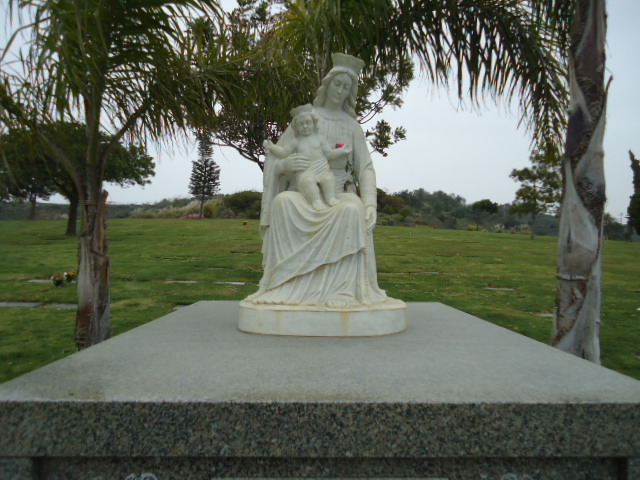- [내 마음의 隨筆] The Winter of Our Discontent를 읽고 - 1 of 23522024.08.12
- [내 마음의 隨筆] The Winter of Our Discontent를 읽고 - 2 of 23192024.08.12
- [Essays of My Heart] A Book Review: The Winter of Our Discontent2862024.08.12
- [내 마음의 隨筆] Mother Teresa의 말씀2632024.08.18
- [내 마음의 隨筆] Haiku/俳句(はいく)/하이쿠3432024.08.18
[Essays of My Heart] A Book Review: The Winter of Our Discontent
2024.08.12A Book Review: The Winter of Our Discontent
The Winter of Our Discontent, the last novel by American writer John Steinbeck (1902-1968), was published in 1961. The novel tells the story of Ethan Allen Hawley, a member of the aristocracy from Long Island who resides in New Baytown, New York. Once hailing from a wealthy and influential family in the town, Ethan faces a society that rewards corruption and greed after his father lost the family's entire fortune. He works as a clerk at a grocery store owned by Mr. Marullo, an undocumented immigrant from Italy. Ethan’s wife, Mary, and their two children, Ellen and Allen, are accustomed to a middle-class American lifestyle and often express dissatisfaction to Ethan about their family's financial insecurity.
The narrative unfolds as Ethan lives day to day as a grocery clerk, constantly under the pressure of providing for his family while maintaining his moral integrity. Throughout the novel, he encounters various temptations and moral dilemmas that challenge his personal values.
Ethan frequently reflects on the material demands and decay of his family members, his own values, and the material success of those around him. His friends and family encourage him to be more ambitious, bolder, and more confident in handling things.
As the story progresses, Ethan contemplates various unethical plans to reclaim his family’s lost wealth. He considers turning Marullo over to the immigration authorities to take over the store, and he also considers exploiting a bank's stock manipulation scheme.
Meanwhile, Ethan’s relationships with his family and friends worsen as they become entangled in his schemes. His son, Allen, participates in a school essay contest, and Ethan secretly authors the essay for him. However, when the truth is revealed, it backfires.
Ethan’s psychological internal conflict reaches its peak as he realizes the impact of his actions on himself, his family, and his community, as well as the corruption of his soul. Ultimately, he faces moral agony and asks himself the fundamental question of whether the ends justify the means.
In the end, Ethan rejects the path of corruption and reaffirms his commitment to integrity. The novel concludes with Ethan's firm resolve to live honestly, despite the various difficult and challenging trials and sacrifices.
The Winter of Our Discontent explores themes of integrity, the negative influence of wealth and power, the American Dream, and the moral decay of society through an individual's inner conflict. Steinbeck comments on the changing values in mid-20th-century America through Ethan’s struggle, a representation of the typical American middle class.
While reading this novel, here are a few facts I have come to realize, even in a fragmentary way, about what truly constitutes America and Americans:
- The impact of the economy on individuals, families, and communities
- The ethical consciousness of Americans (individual, family, society)
- Notions about money
- Pride in or curiosity about one’s roots
- Superstitious approaches to problem-solving
- A fondness for parties
- Attitudes towards marriage and spouses
- Perceptions of discontent and happiness (perceptions of winter and summer)
- Responsibilities and attitudes as a head of the family and husband
- The influence of elections and politics on American society
- Relationships and love within the family
- Concepts of time and history
- Christian beliefs, lifestyles, and subconscious elements
- Perspectives on careers
- Attitudes towards and perceptions of undocumented immigrants and foreigners
- Awareness of crime
- Perceptions of public authority and law enforcement agencies
- Views on plagiarism
- Various aspects of community life.
Steinbeck’s novel poignantly examines the ethical dilemmas faced by individuals in a rapidly changing social order through Ethan Hawley’s journey. He sharply critiques the flawed notion that success and material wealth are the ultimate measures of a person's worth.
“Now is the winter of our discontent
Made glorious summer by this sun of York.”
CHAPTER TEN
The Winter of Our Discontent – Ethan’s Song
August 12, 2024
Solti








 부군 먼저▶◀부인 후에
부군 먼저▶◀부인 후에
 Nembutal-Pentobarbital 구매, 시안화 칼륨 구매, Xanax 구매
Nembutal-Pentobarbital 구매, 시안화 칼륨 구매, Xanax 구매
 438. 발레가 아이의 중심을 세우는 이유
438. 발레가 아이의 중심을 세우는 이유
 가든그로브 지역에 등불 교회가 시작됩니다
가든그로브 지역에 등불 교회가 시작됩니다
 플러튼 1백만불대의 타운하우스 신축 vs 구축 어느 쪽을 선택할까?
플러튼 1백만불대의 타운하우스 신축 vs 구축 어느 쪽을 선택할까?
 Abiraterone Acetate Tablets: Price, Dosage, Side Effects
Abiraterone Acetate Tablets: Price, Dosage, Side Effects
 GOLF LESSONS 골프레슨 CLUB FACE 오렌지 카운티 얼바인 애너하임 플러튼
GOLF LESSONS 골프레슨 CLUB FACE 오렌지 카운티 얼바인 애너하임 플러튼
 찾아 봐도▶◀불러 봐도
찾아 봐도▶◀불러 봐도
 1월 31일까지 저렴한 가격의 건강보험에 가입하세요.
1월 31일까지 저렴한 가격의 건강보험에 가입하세요.
